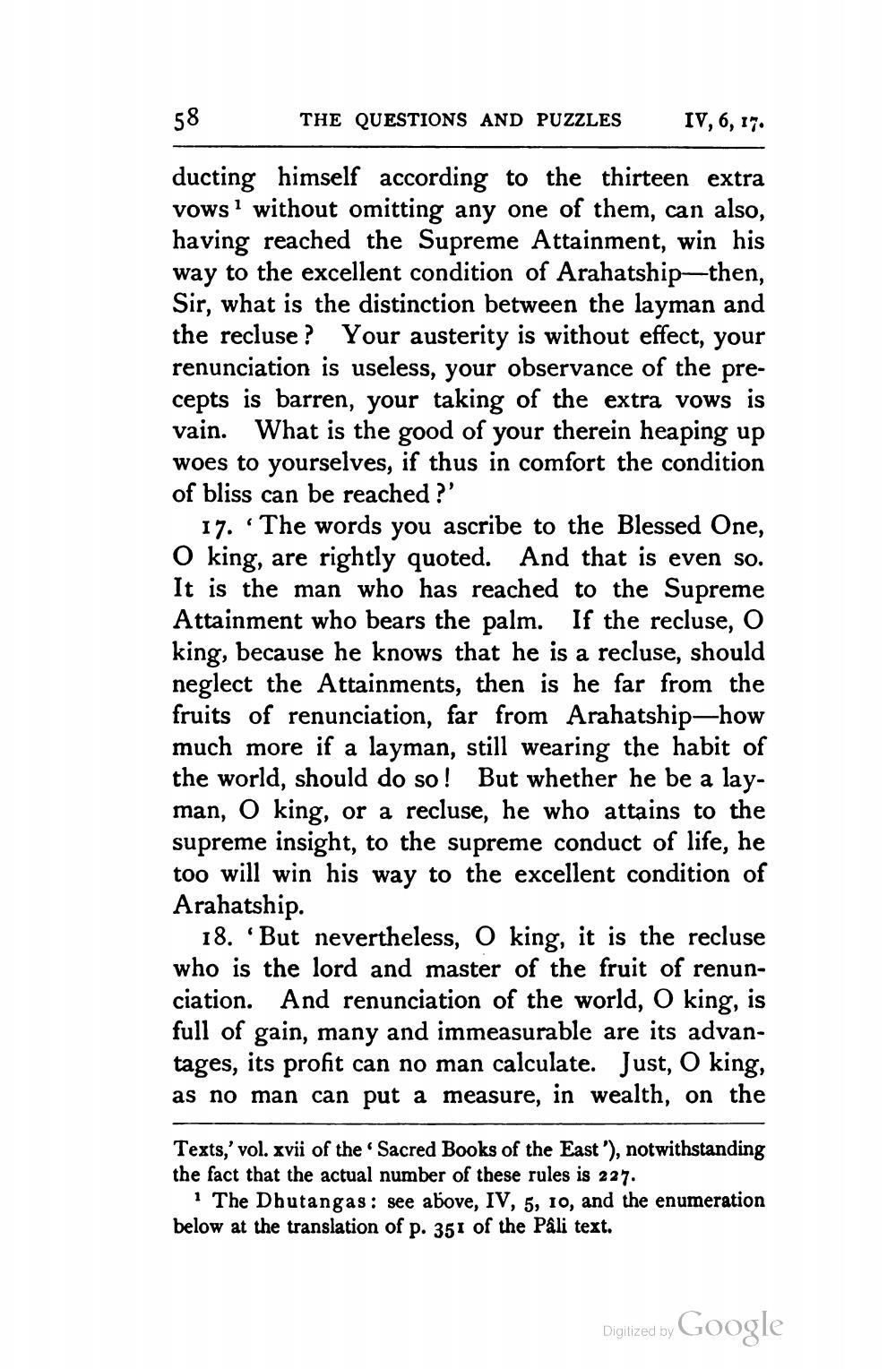________________
58
THE QUESTIONS AND PUZZLES
IV, 6, 17.
ducting himself according to the thirteen extra vows? without omitting any one of them, can also, having reached the Supreme Attainment, win his way to the excellent condition of Arahatship—then, Sir, what is the distinction between the layman and the recluse ? Your austerity is without effect, your renunciation is useless, your observance of the precepts is barren, your taking of the extra vows is vain. What is the good of your therein heaping up woes to yourselves, if thus in comfort the condition of bliss can be reached ?'
17. The words you ascribe to the Blessed One, O king, are rightly quoted. And that is even so. It is the man who has reached to the Supreme Attainment who bears the palm. If the recluse, O king, because he knows that he is a recluse, should neglect the Attainments, then is he far from the fruits of renunciation, far from Arahatship-how much more if a layman, still wearing the habit of the world, should do so! But whether he be a layman, O king, or a recluse, he who attains to the supreme insight, to the supreme conduct of life, he too will win his way to the excellent condition of Arah
18. But nevertheless, O king, it is the recluse who is the lord and master of the fruit of renunciation. And renunciation of the world, O king, is full of gain, many and immeasurable are its advantages, its profit can no man calculate. Just, О king, as no man can put a measure, in wealth, on the
Texts,' vol. xvii of the Sacred Books of the East'), notwithstanding the fact that the actual number of these rules is 227.
1 The Dhutangas: see above, IV, 5, 10, and the enumeration below at the translation of p. 351 of the Pali text.
Digitized by Google




